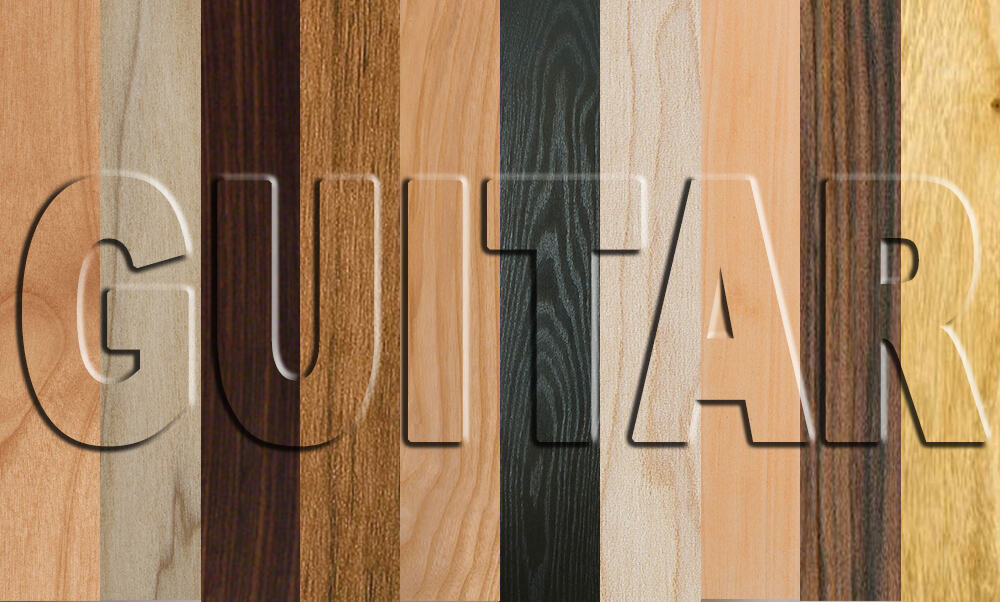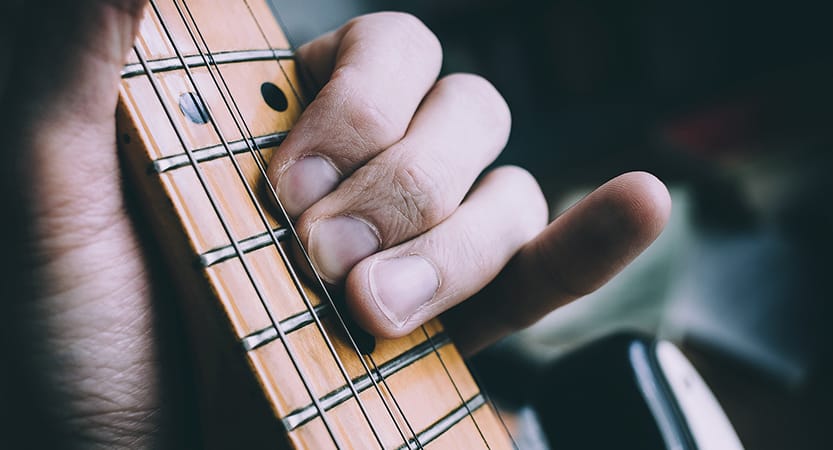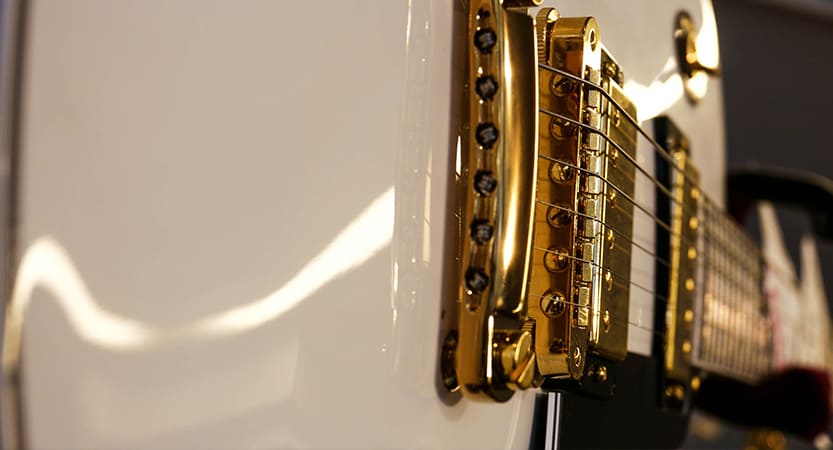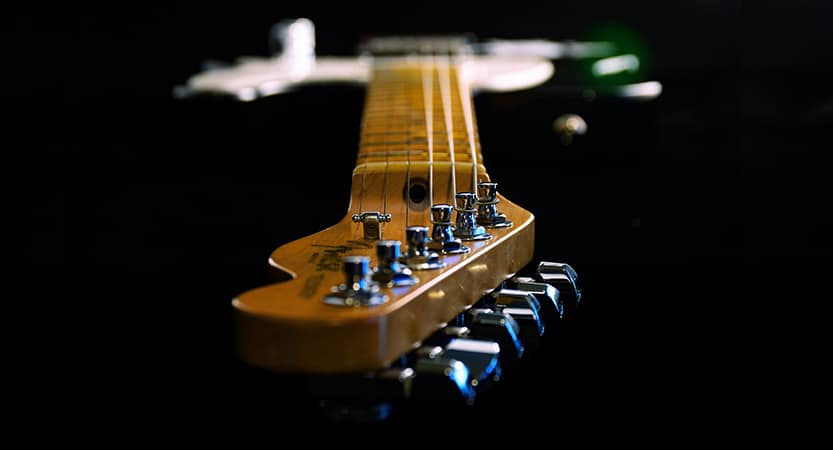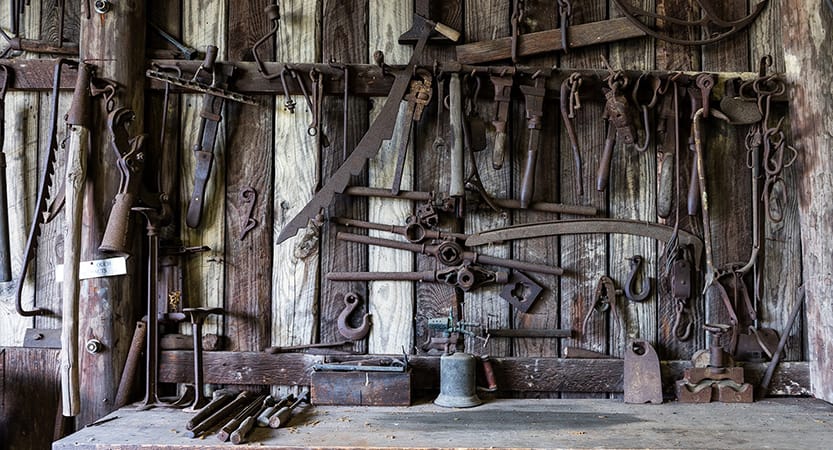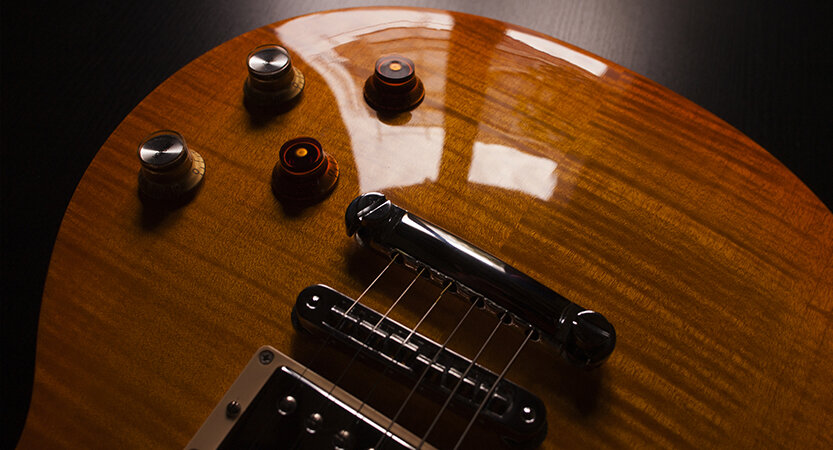So, what are the Guitar Wood Types?
Some popular types of guitar woods are Alder, basswood, mahogany, swamp ash, walnut, koa, maple, rosewood, ebony, and wenge. Each of the wood types has its distinct features, including looks and tonal properties.
Who Invented the Electric Guitar
Who Invented the Electric Guitar?
The first real electric guitar in the early 1900s, is attributed to Adolph Rickenbacker, an electric engineer, and George Beauchamp, a musician. The duo made improvements on several earlier inventions to produce an electric guitar that’s modern and commercially viable.
Guitar Parts Names – Your Guide
The Main Parts of Acoustic and electric guitar are:
• The Head and tuners
• The Neck, Fretboard and Nut
• The Body, Bridge and Saddles
• The Pickups, Volume and treble, and Output Jack (Just for the Electric Guitar)
What Are the Guitar Strings’ Names?
If you are a beginner or aspiring guitaris and get a bit confused about the names and the order of the strings and the tuning, we are her to clear all the confusion.
The guitar string names, starting from the thickest, are E,A,D,G,B,E. Part of the confusion is the order, which is first or last, the terminology as far as high vs. low and top vs. bottom. Let’s try and clear it step by step.
Where do I find Luthier Tools and Supplies?
You were probably wondering if these tools and supplies are something you can find at your local store, do you have to find a specialty shop or can you just by them Online?
The answer is Yes. You can easily find some of them at your local hardware stores and supplies. Other, more specific tools will be found at stores that are lutherie specific stores. Fortunately, you can also find them online. You just need to know what to look for and where.
I will list some of the stores that specialize in these tools and supplies, as well as the options for different qualities and budgets.
What Is A Luthier – Want to Become One?
By definition a Luthier is someone who builds and repairs stringed instruments such as violins and guitars. Today there are plenty of small schools and programs and even some larger institutions and colleges offering a “Musical Instrument Fabrication and Repair” degree or certificate.

